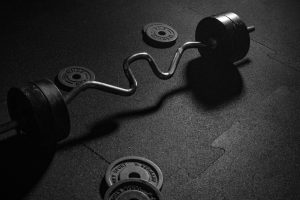The Importance of Diet in the Life of a Pro Soccer Player
I remember when I was 19 years old we had an evening training session and when I stepped in the locker room the board was filled with writings of a coach who, apparently, conducted a session before us. Out of everything that was scattered across the board one sentence written on the top stuck with me and from that moment on it became a principle.
The unknown coach wrote, ‘Diet, sleep, focus and communication is training too’. In this article, I will shed some light on the first one on his list.
Professional soccer players’ lives are highly demanding, both physically and mentally. In addition to training sessions and games, professional soccer players must ensure they maintain their physical health through diet and nutrition.
The foods that players eat can have a significant impact on how they perform on the field, their ability to recover from injuries, and their general state of wellness.
Preparing for Games and Training
Professional soccer players have a very structured and scheduled diet, especially before games and practice sessions. In the days before a game, players often eat a high-carbohydrate diet because it gives their bodies the energy they need to perform well on the field.
Prior to games and practice sessions, players must also make sure they are maintaining proper hydration. For a high-performing athlete, proper hydration is essential for muscle function, temperature management, and cognitive function. Players may also ingest foods strong in protein to aid with muscle regeneration and repair in addition to carbohydrates and water.
Eggs, salmon, and lean meats are all excellent sources of protein that can help keep players in peak physical condition.
Recovering After a Game
It is crucial for athletes to eat nutrients that promote muscle recovery and regeneration after a game. After a game, the body usually experiences inflammation, thus eating foods high in antioxidants can assist to lessen this inflammation and speed up healing.
Antioxidant-rich foods like blueberries, strawberries, and leafy greens can be included in smoothies or served as part of a post-game meal. Salmon, chicken, and tofu are just a few of the high-protein foods that are good for recovery.
After a game, athletes may also eat foods high in carbs to assist the body restore its energy reserves and speed up muscle recuperation. foods like quinoa, sweet potatoes, and whole-grain pasta are all great sources of carbohydrates that can be incorporated into a post-game meal.
The Role of Supplements
In addition to a balanced diet, many professional soccer players use supplements to improve their performance and recovery. Creatine, protein powders, and beta-alanine are popular among athletes because they can aid in muscle recovery and growth. It is crucial to note that supplements should always be used in conjunction with a balanced diet and only under the supervision of a healthcare professional. While some supplements may be advantageous to some athletes, they can also have negative side effects if not utilized properly.
Examples of a professional soccer player diet
Breakfast:
Eggs (4 egg whites and one whole egg) + Avocado toast + Fruits
Snack:
Protein smoothie
Lunch:
Grilled chicken breast + Veggies + Rice
After training:
Whey or pea protein + A glass of milk + Fruits
Dinner:
Fish or pasta + Greens + Salad
Late-night before bed:
Peppermint tea + A glass of water
Final Thoughts
To summarize, a professional soccer player’s nutrition is crucial for their effectiveness on the field, ability to recover from injuries, and overall health and well-being. Players have a high-carbohydrate diet and stay hydrated before games and training sessions to guarantee they have the energy and muscular function needed to perform at a high level.
Following a game, players ingest foods high in protein and antioxidants that aid in muscle recovery and regeneration. Furthermore, many players use supplements to help with performance and recovery, but they must be used properly and under the supervision of a physician.
Professional soccer players can stay in peak physical condition and perform at their best on the field by adopting a decent diet and nutrition.







